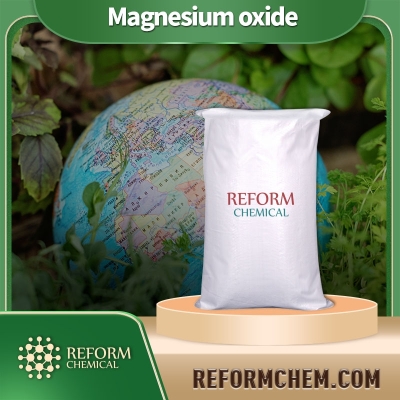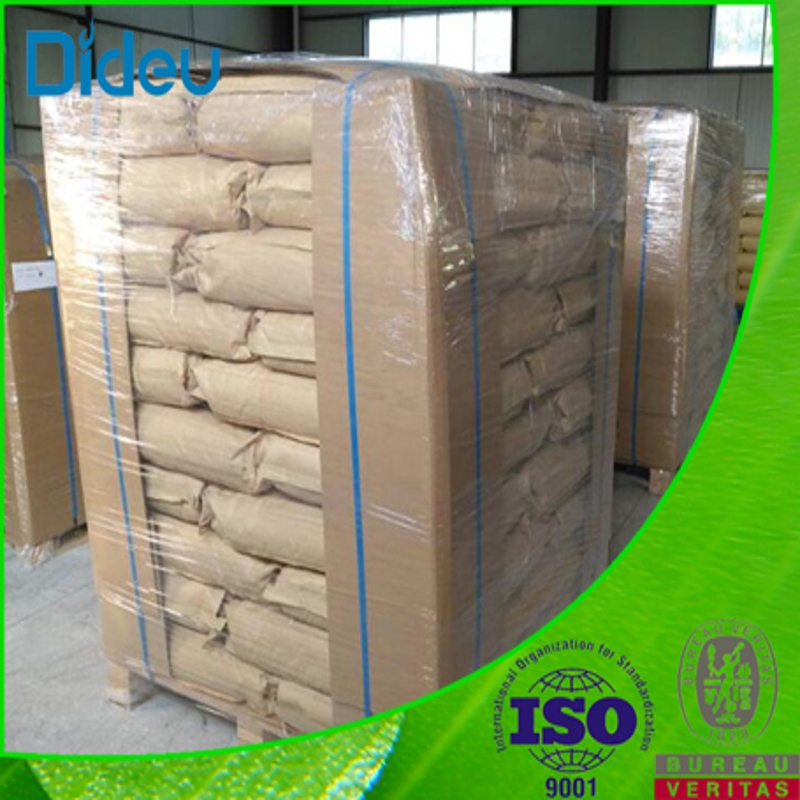-
Categories
-
Pharmaceutical Intermediates
-
Active Pharmaceutical Ingredients
-
Food Additives
- Industrial Coatings
- Agrochemicals
- Dyes and Pigments
- Surfactant
- Flavors and Fragrances
- Chemical Reagents
- Catalyst and Auxiliary
- Natural Products
- Inorganic Chemistry
-
Organic Chemistry
-
Biochemical Engineering
- Analytical Chemistry
-
Cosmetic Ingredient
- Water Treatment Chemical
-
Pharmaceutical Intermediates
Promotion
ECHEMI Mall
Wholesale
Weekly Price
Exhibition
News
-
Trade Service
In November 2022, the European Society of Gastrointestinal Endoscopy (ESGE) published guidelines
for the endoscopic diagnosis and treatment of oesophageal variceal bleeding.
Portal hypertension can cause bleeding from oesophageal varices and requires emergency evaluation and management
.
This article mainly provides guidance and suggestions for the endoscopic diagnosis and treatment of esophageal variceal bleeding, and the recommendations of this article are translated as follows:
1.
Endoscopic screening of high-risk esophageal and gastric varices and primary prevention of esophageal and gastric variceal bleeding (EGVH).
1.
1 Screening for high-risk esophageal and gastric varices
ESGE recommends compensated advanced chronic liver disease (ACLD) with a liver stiffness measurement < 20 kPa and a ≥platelet count of 150×109/L who do not require upper gastrointestinal (GI) endoscopic screening
due to the low likelihood of high-risk varices.
(Strong recommendation, high-quality evidence)
ESGE recommends upper endoscopic screening in patients with decompensated ACLD (transient elastography measurement of liver stiffness ≥ 20 kPa or platelet count ≤150×109/L) to identify high-risk esophageal varices (moderate or large esophageal varices, or small esophageal varices with red signs).
(strong recommendation, moderate-certainty evidence)
ESGE recommends that patients with compensated ACLD should undergo upper GI endoscopic screening to differentiate high-risk oesophageal varices (moderate or large oesophageal varices, or small oesophageal varices with red signs) ≥≤ 20 kPa or platelet counts 150×109/L on transient elastography β(strong recommendation, moderate-certainty evidence)
ESGE recommends recording esophageal varices as small, moderate, or large varicose veins, with or without red signs
, in an endoscopic report using Baveno criteria.
(strong recommendation, low-certainty evidence)
ESGE recommends recording gastric varices
in endoscopy reports according to Saren's classification criteria.
(strong recommendation, low-certainty evidence)
ESGE does not recommend video capsule endoscopy (VCE) screening for esophageal varices
.
(Strong recommendation, high-quality evidence)
1.
2 Primary prevention of oesophagogastric variceal bleeding
ESGE recommends >>compensatory advanced chronic liver disease (ACLD; Patients with non-alcoholic steatohepatitis due to viruses, alcohol, and/or non-obesity [BMI<30 kg/m2] nonalcoholic steatohepatitis) should receive nonselective β blocker (NSBB) (carvedilol preferred) to prevent variceal bleeding if there are no contraindications
.
(strong recommendation, moderate-certainty evidence)
ESGE recommends prophylactic endoscopic therapy in patients who are unable to receive NSBB and who have high-risk oesophageal and gastric varices confirmed by upper endoscopic
screening.
(strong recommendation, moderate-certainty evidence)
The ESGE recommends endoscopic ligation (EBL) as the preferred endoscopic prophylactic therapy for endoscopic prophylaxis in patients who are unable to receive NSBB and who are confirmed by upper gastrointestinal (GI)
endoscopic screening to be at high risk of oesophageal varices.
EBL should be repeated every 2 to 4 weeks until varicose veins
are eradicated.
Thereafter, in the first year after eradication, gastroduodenoscopy (EGD) is performed every 3-6 months
.
(strong recommendation, moderate-certainty evidence)
ESGE recommends that those who are unable to receive NSBB and upper gastrointestinal (GI) endoscopic screening confirms gastric varices (Sarin GOV-2 or IGV-1; cardia gastric varices), treatment with no treatment, cyanoacrylate injection alone, or endoscopic ultrasound (EUS)-guided spring coil with sodium cyanoacrylate injection may be considered
.
EUS-guided injection therapy should be decided on a case-by-case basis and should be limited to centers
with experience with this endoscopic technique.
(weak recommendation, low-certainty evidence)
ESGE recommends that patients who are not eligible for NSBB and who are not at high risk of varices on upper endoscopic screening should have endoscopy every 2 years if there is persistent active liver disease and every 3 years if the underlying liver disease is quiescent
.
(weak recommendation, low-certainty evidence)
2.
Preendoscopic management of acute EGVH
2.
1 Hemodynamic resuscitation
ESGE recommends that patients with suspected acute EGVH should have their hemodynamic status
urgently assessed.
(strong recommendation, low-certainty evidence)
ESGE recommends prompt but cautious intravascular volume replacement, such as haemodynamic instability, initial use of crystalloid to restore tissue perfusion, and avoidance of intravascular volume overload
.
(strong recommendation, low-certainty evidence)
ESGE does not recommend transfusion of fresh frozen plasma as part of the initial management of
EGVH.
(strong recommendation, low-certainty evidence)
ESGE does not recommend the use of recombinant factor VIIa as part of the initial management of
EGVH.
(Strong recommendation, high-quality evidence)
2.
2 Endotracheal intubation
ESGE recommends endotracheal intubation prior to upper endoscopy in patients with suspected variceal bleeding and persistent hematemesis, encephalopathy, and/or agitation that prevents aspiration-of-gastric contents
.
(weak recommendation, low-certainty evidence)
ESGE recommends extubation as soon as clinically safe after upper endoscopy if prophylactic endotracheal intubation is performed
.
(strongly recommended, very low-certainty evidence)
2.
3 Platelet and fresh frozen plasma (FFP) transfusion
ESGE does not recommend routine platelet transfusions or initiation of platelet transfusions at a specific minimum platelet value
.
If variceal bleeding is not controlled, platelet
transfusions should be made on a case-by-case basis.
(strong recommendation, moderate-certainty evidence)
ESGE recommends that hemodynamically stable patients with acute upper gastrointestinal bleeding (UGIH) who have no history of cardiovascular disease should use a restrictive red blood cell (RBC) transfusion strategy with hemoglobin ≤ 70 g/L of red blood cells
.
Target hemoglobin 70-90 g/L
after transfusion.
(strong recommendation, moderate-certainty evidence)
ESGE recommends that patients with hemodynamically stable acute UGIH who have a history of acute or chronic cardiovascular disease can relax the RBC infusion strategy with a hemoglobin value of ≤ 80 g/L for RBC
infusion.
(strong recommendation, low-certainty evidence)
2.
4 Risk Stratification
ESGE recommends risk stratification by Child-Pugh score and MELD score for patients with ACLD with suspected acute variceal bleeding, and to document active/inactive bleeding
on upper endoscopy.
(Strong recommendation, high-quality evidence)
The ESGE recommends the following definition of risk stratification: a: Child-Pugh class A or Child-Pugh B patients with no active bleeding or MELD < score of 11 on upper gastrointestinal endoscopy are at
low risk of poor prognosis.
b: patients with Child-Pugh class B or Child-Pugh class C who have active bleeding on upper GI endoscopy despite vasoactive drugs are at high risk of poor prognosis
.
c: Patients with a score of 19 MELD≥ are at
high risk of poor prognosis.
(Strong recommendation, high-quality evidence)
2.
5 Use of vasoactive drugs
ESGE recommends immediate use of the vasoactive agents terlipressin, octreotide, or somatostatin for 5 days
in patients with suspected acute variceal bleeding.
(Strong recommendation, high-quality evidence)
ESGE recommends that vasoactive agents be discontinued
after 24 to 48 hours in selected patients after successful endoscopic hemostasis.
(weak recommendation, moderate-certainty evidence)
2.
6 Prophylactic antibiotics
ESGE recommends the prophylactic antibiotic ceftriaxone 1 g/day for 7 days in all patients with ACLD with acute variceal bleeding, or depending on local antibiotic resistance and the patient's allergy history
.
2.
7 Management of patients using antiplatelet drugs
ESGE recommends temporary discontinuation of antiplatelet agents
in patients with acute variceal bleeding.
(strong recommendation, low-certainty evidence)
The ESGE recommends that the decision to resume antiplatelet therapy
should be based on the patient's risk of rebleeding and thrombosis.
(strong recommendation, low-certainty evidence)
2.
8 Management of patients on anticoagulant drugs
ESGE recommends temporary discontinuation of anticoagulants in patients with suspected acute variceal bleeding, and appropriate reversal agents
in hemodynamically unstable patients.
(strong recommendation, low-certainty evidence)
The ESGE recommends that re-initiation of anticoagulants
should be guided based on the patient's risk of rebleeding and thrombosis.
(strong recommendation, low-certainty evidence)
2.
9 Use of prokinetic drugs
ESGE recommends intravenous administration of 250 mg of erythromycin 30-120 minutes before upper gastrointestinal endoscopy in patients with suspected acute variceal bleeding in the absence of
contraindications.
(Strong recommendation, high-quality evidence)
3.
Endoscopic treatment
3.
1 Endoscopic timing
ESGE recommends endoscopic evaluation
within 12 hours of admission after hemodynamic resuscitation in patients with suspected variceal bleeding.
(strong recommendation, moderate-certainty evidence)
ESGE recommends patients with suspected acute variceal bleeding whose timing of upper GI endoscopy is not affected
by INR levels on admission.
(strong recommendation, low-certainty evidence)
4.
Bleeding from esophageal varices
4.
1 Initial Management
ESGE recommends EBL for the treatment of acute EVH
.
(Strong recommendation, high-quality evidence)
ESGE does not recommend hemostatic spray/powder as definitive endoscopic treatment for acute oesophageal or gastric variceal bleeding, but when conventional endoscopic therapy is ineffective or unavailable, hemostatic therapy/powder may be considered as a bridging therapy for definitive treatment
.
(Strong recommendation, high-quality evidence)
ESGE recommends that patients at high risk of oesophageal variceal rebleeding (Child-Pugh C≤13 or Child-Pugh B>7) who are at high risk of oesophageal variceal rebleeding after successful endoscopic hemostasis and who are still active on endoscopy with vasoactive drugs, or HVPG >20 mmHg), must be considered for scheduling TIPS
as soon as possible within 72 hours (preferably within 24 hours).
(Strong recommendation, high-quality evidence)
4.
2 Management of endoscopic hemostasis failure of endoscopic hemostasis in acute esophageal variceal bleeding
ESGE recommends persistent oesophageal variceal bleeding despite vasoactive agents and endoscopic haemostasis therapy, and urgent TIPS (if available) should be considered (strong recommendation, moderate-certainty evidence)
ESGE recommends that oesophageal variceal bleeding persists despite vasoactive agents and endoscopic hemostasis, and that self-expanding metal stents, if available, are more suitable bridging therapy for definitive haemostatic treatment than balloon tamponade
.
(weak recommendation, low-certainty evidence)
4.
3 Management of oesophageal variceal rebleeding after initial endoscopic hemostasis
ESGE recommends that EVH relapse within 5 days of successful treatment for initial endoscopic hemostasis can be attempted with a second endoscopic treatment or remedial TIPS
.
(weak recommendation, low-certainty evidence)
5.
Acute gastric variceal bleeding
5.
1 Initial Management
ESGE recommends grading
gastric or gastroesophageal varices according to the Sarin classification.
(strong recommendation, low-certainty evidence)
ESGE recommends endoscopic injection of cyanoacrylate for the treatment of acute gastric (cardia-fundic) variceal (GOV2, IGV1) bleeding
.
(Strong recommendation, high-quality evidence)
Due to limited and mixed data, ESGE does not make a formal recommendation
for endoscopic thrombin injection for acute gastric (cardia) variceal (GOV2, IGV1) bleeding.
ESGE recommends endoscopic cyanoacrylate injections or EBL for the treatment of patients with
GOV1 bleeding.
(strong recommendation, moderate-certainty evidence)
ESGE recommends EUS-guided management of hemorrhagic gastric varices in combination with injection coils and cyanoacrylates for centers
with expertise and familiarity with this technique.
(weak recommendation, low-certainty evidence)
5.
2 Management of endoscopic hemostasis failure and early recurrent bleeding
ESGE recommends urgent salvage tips or retrograde embolization (BRTO) for gastric variceal bleeding with failed endoscopic hemostasis or early recurrent bleeding
.
(weak recommendation, low-certainty evidence)
5.
3 Post-endoscopy management
ESGE recommends that patients receiving EBL for acute EVH should be followed up with EBL every 1 to 4 weeks to eradicate oesophageal varices (secondary prevention) (strong recommendation, moderate-certainty evidence)
ESGE recommends NSBBs (propranolol or carvedilol) in combination with endoscopic therapy for secondary prevention
of EVH in patients with ACLD.
(Strong recommendation, high-quality evidence)
ESGE recommends an individualised approach to secondary prevention of cardia gastric variceal bleeding (GOV2, IGV1) based on patient factors and local expertise, as there is a lack of clear, high-level evidence for specific eradication therapy for cardia gastric varices (e.
g.
endoscopic cyanoacrylate injection ± NSBB, EUS-guided injection coil plus cyanoacrylate, TIPS or BRTO) and appropriate treatment intervals
5.
4 Application of proton pump inhibitor therapy
ESGE does not recommend routine use of proton-pump inhibitors (PPIs) in the postendoscopic management of acute variceal bleeding, and PPIs
should be discontinued if they have been started prior to endoscopy.
(weak recommendation, low-certainty evidence)
5.
5 Prevention/treatment of hepatic encephalopathy
ESGE recommends rapid clearance of gastrointestinal blood, preferably lactulose, to prevent or treat hepatic encephalopathy
in patients with acute variceal bleeding in cirrhosis.
(strong recommendation, moderate-certainty evidence)







